Publications
Articles, publications, books, tools and multimedia features from the U.S. Institute of Peace provide the latest news, analysis, research findings, practitioner guides and reports, all related to the conflict zones and issues that are at the center of the Institute’s work to prevent and reduce violent conflict.
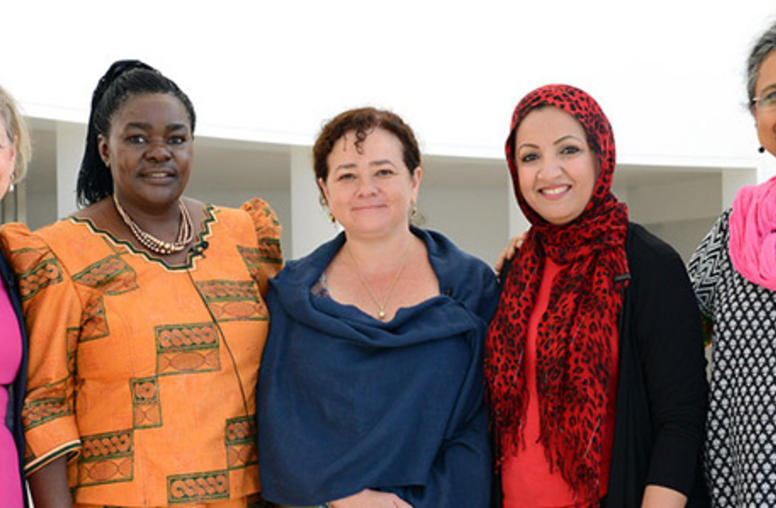
Acclaimed Iraqi Women’s Rights Lawyer Pleads, 'Please Don’t Forget Iraq'
A poignant plea from a prominent Iraqi lawyer who was lauded this week for her community leadership illustrated the determination it takes to achieve change in the most daunting circumstances. “Please, don’t forget Iraq,” Suaad Allami told an audience at the U.S. Institute of Peace, just hours before President Barack Obama announced plans to send 300 military advisers to support her country’s security forces amid the current crisis.
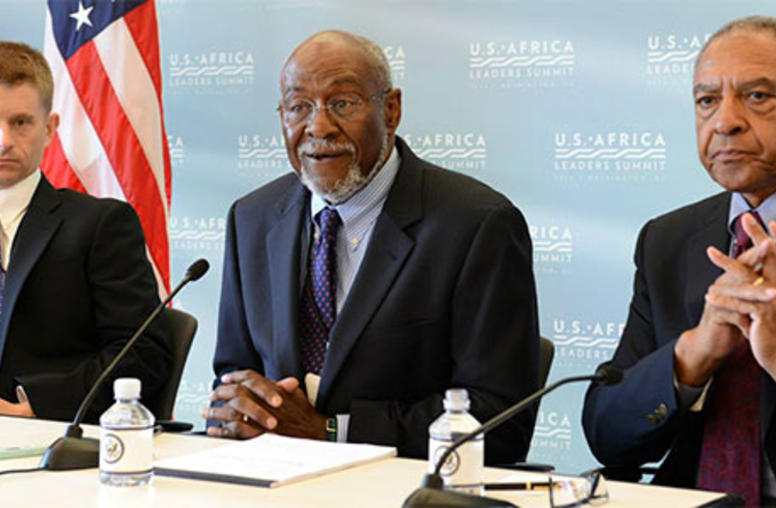
How to Gauge Africa Summit Success? Updated, Realistic Perceptions
President Barack Obama’s U.S.-Africa Leaders Summit will be a success to the extent that it updates the perception of Africa’s economic, political and social potential without underestimating the remaining problems of violence, dictatorship and corruption, according to two former assistant secretaries of state for African Affairs.
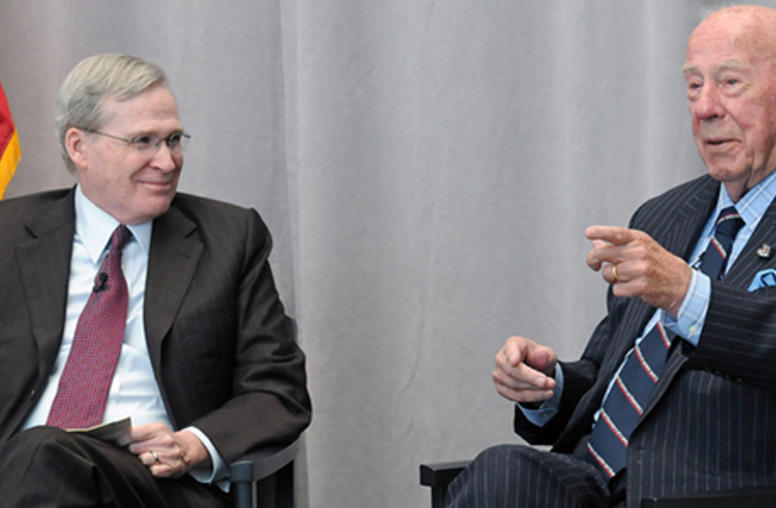
China Has Peaked as a Challenger to U.S. Power, Former Secretary of State Shultz Says
While China continues to grow as an economy and a military and political power, its overall influence relative to the United States has passed its peak, former Secretary of State George Shultz said at the U.S. Institute of Peace January 30. As China’s population ages, fewer working-age people must support a larger aged and dependent populace. “I think China, in relation to the U.S., has already reached its peak,” Shultz said in offering the Institute’s annual Dean Acheson Lecture.
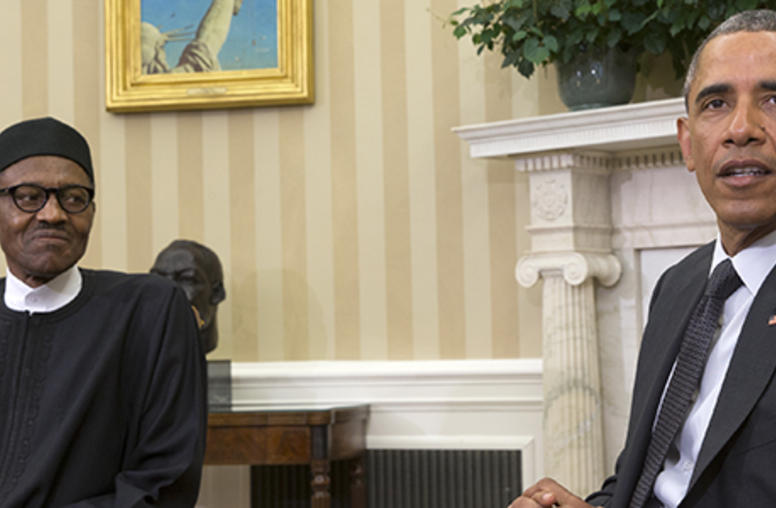
Obama, in Africa, Will Need to Balance Agenda, Ex-Envoys Say
Six years after Barack Obama first visited sub-Saharan Africa as a presidential messenger of democracy, he faces a more complicated task in turning back to the continent next week. Obama hosts Nigeria’s new president, Muhammadu Buhari, on July 20, and then flies to Kenya and Ethiopia. As he does, the continent’s security threats and its urgent need to address ongoing poverty are forcing him to balance priorities and messages, say two former assistant secretaries of state now at the U.S. Insti...
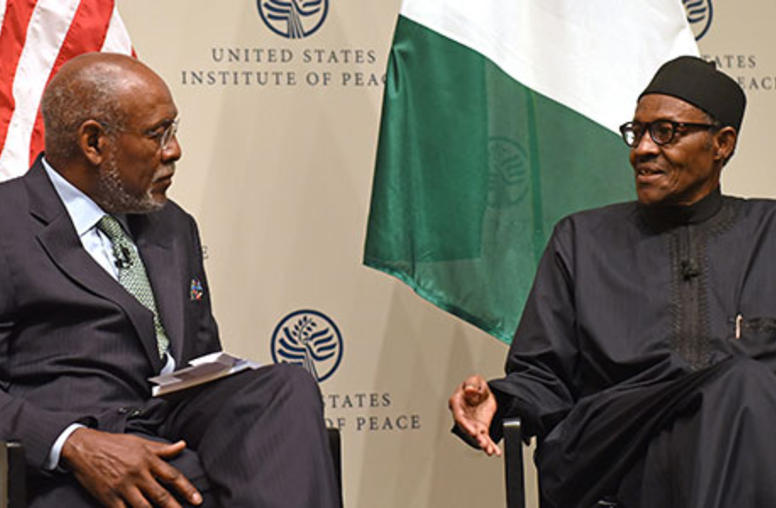
Nigeria's Buhari Presses for Military Aid, Pledges 'Zero Tolerance' for Corruption
Nigerian President Muhammadu Buhari said his new government will “do what it takes” to defeat the extremist violence of Boko Haram, and he bluntly called on the U.S. to ease its restrictions on providing the weapons that his military needs to prevail in the fight. In an address at the U.S. Institute of Peace today, he also reaffirmed “zero tolerance” for corruption and pledged to restore trust in the country’s governance.
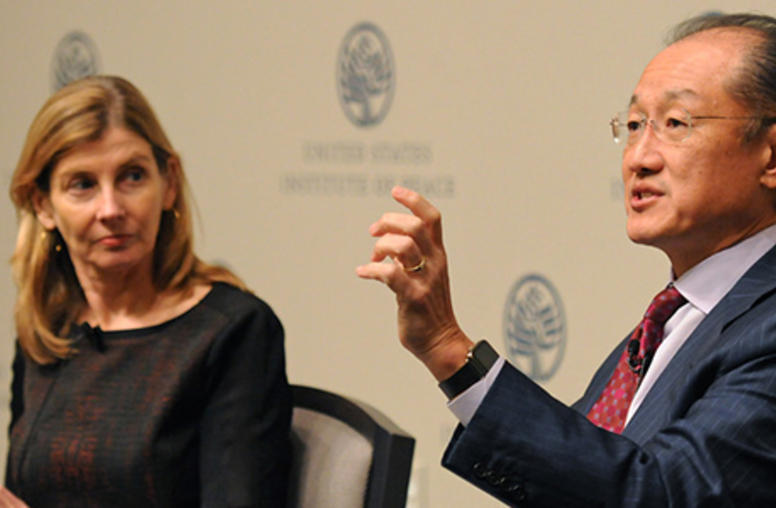
World Bank Chief Urges End to Extreme Poverty, Rethink for Development in Conflict Zones
World leaders must act to end extreme poverty in the next 15 years by addressing economic inequality that stems from wealth concentrated in the hands of a few and exacerbates conflict and instability, World Bank Group President Jim Kim said in an address at the U.S. Institute of Peace.
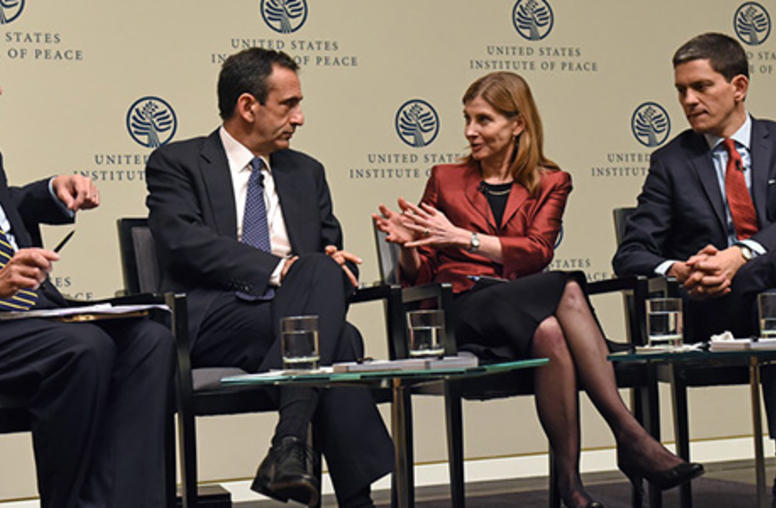
Too Little Aid, Too Many Displaced: Remaking Humanitarian Assistance
The international system to aid people displaced by conflict is strained beyond the breaking point. Faced with the greatest flood of displacement since World War II—and with no end in sight—governments and international organizations need to rethink every level of aid, from funding to future outcomes, according to experts assessing the crisis in a discussion at the U.S. Institute of Peace.
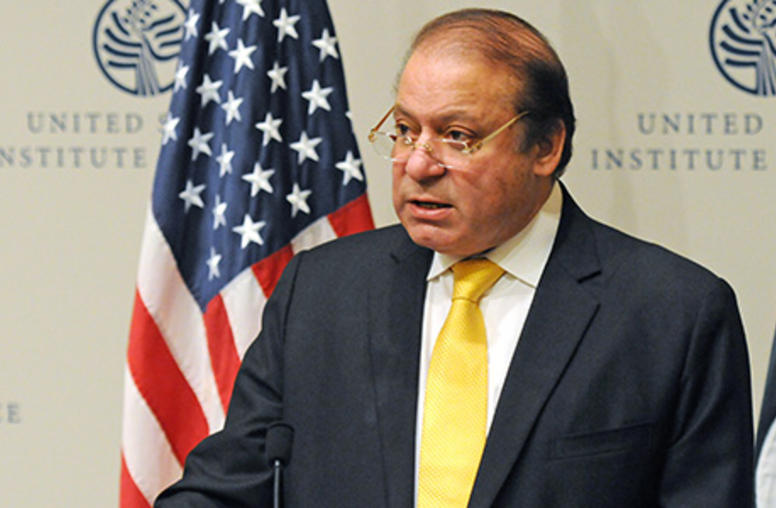
Pakistan’s Sharif Urges Renewed Peace Talks in Afghanistan
A military victory over the Taliban and other insurgents in Afghanistan is unlikely, and the parties to the conflict must try to resolve it through negotiations, Pakistani Prime Minister Nawaz Sharif said today.
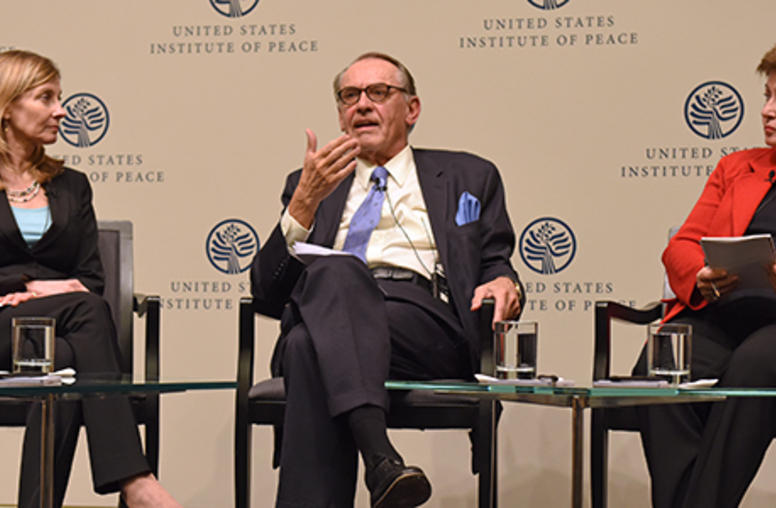
U.N. Eyes Early Human Rights Intervention to Promote Development
United Nations discussions that are underway on how it can intervene to stop human rights violations within national boundaries might help prevent such tensions from exploding into the kinds of civil wars and floods of refugees that the world is experiencing today, said Jan Eliasson, the global body’s deputy secretary general, at an event organized by the U.S. Institute of Peace.
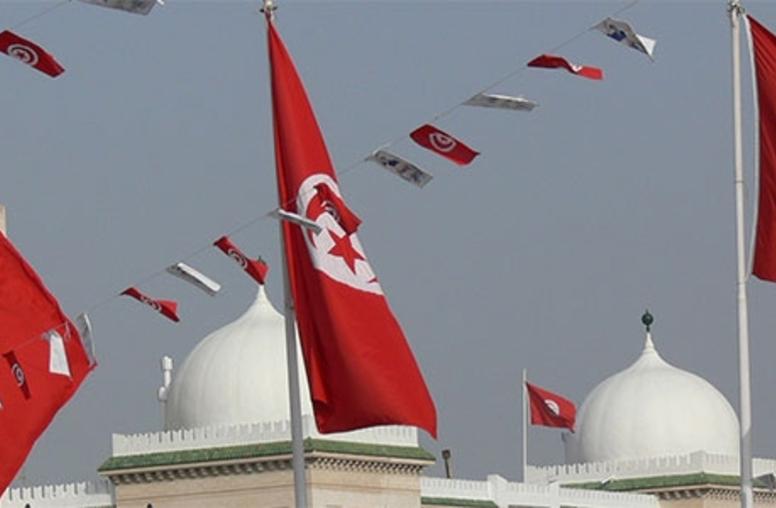
In Tunisia, Economic Crisis Threatens Political Progress
The relative stability of Tunisia’s politics—achieved through a “national dialogue” whose mediators won the Nobel Peace Prize—is largely holding. Within a broad, governing coalition, Islamists, secularists, trade unions and employers all jockey for advantage in the usual democratic ways. But beneath the comparative calm, an economic crisis threatens the political gains of the only country building a democracy from the Arab Spring uprisings of 2011.